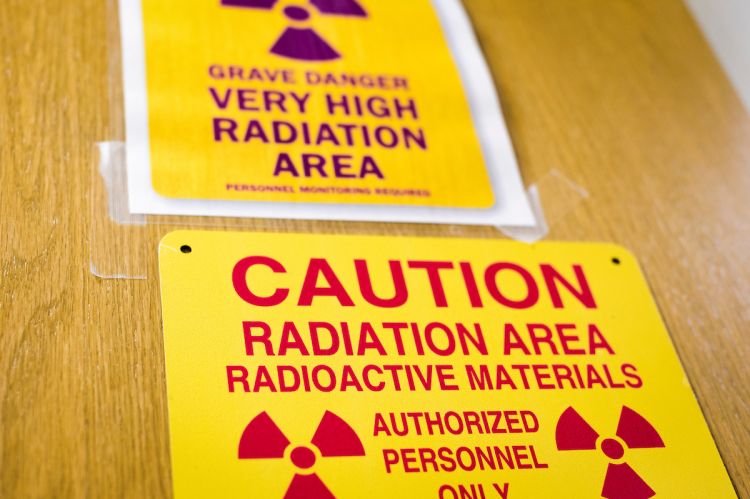UW first in Wisconsin to offer new radioactive drug treatment


In January 2018, the Food and Drug Administration (FDA) approved a new neuroendocrine tumor (NET) therapy: a radioactive, tumor-specific drug.
About two months later, the first patient in Wisconsin received the treatment at the UW Carbone Cancer Center.
The drug, Lutetium Lu 177 dotatate (Lutathera), performed very well in clinical trials to treat NETs of the gastrointestinal tract. NETs arise from neuroendocrine cells and are rare, accounting for about one-half of one percent of all newly diagnosed cancers. Although NETs are often slow-growing, most patients eventually succumb to their disease.
"It's the most positive treatment we've ever seen in neuroendocrine tumors, so we're pretty excited," said Noelle LoConte, MD, associate professor, Hematology, Medical Oncology and Palliative Care.
Bringing the treatment to UW was not trivial. "Normally when a new drug is approved, we have the infrastructure in place and it's not a big deal to offer it to our patients. But in this case, because it's a radioactive drug, we had to build the infrastructure from the ground up," said Dr. LoConte.
Planning required the center to establish new safety and environmental services protocols. In an article in student news outlet The Badger Herald, some of the logistics were described by Dr. LoConte. Treatment sessions require covering the walls of the room with water-impervious material, and patients are pre-medicated with amino acids to protect their kidneys, which has caused up to 40 percent to report extreme nausea or vomiting.
“We are concerned about — for lack of a better word — yacking up radioactive stomach contents,” said Dr. LoConte.
After each round of treatment, patients have to wait for three days for the radiation from the drug to decrease to safer levels before they can see their family members.
Teamwork and coordination to offer Luthera treatment involved dozens of personnel, Dr. LoConte emphasized. "I'm not exaggerating when I say 50 to 60 people were involved [in logistics of offering the drug to UW Carbone Cancer Center patients]," she said.
"NETs are a rare disease and they sometimes seem like they're forgotten, so it's nice to see so many people rallying around a really exciting treatment."
Resources:
- "First Wisconsin Patient Treated With New Neuroendocrine Tumor Drug," UW Health, April 10, 2018
- "UW cancer facility first in Wisconsin to implement newly approved radioactive drug treatment," The Badger Herald, April 24, 2018
Photo (top): Radiation caution and safety signs are pictured in a radiotherapy treatment room at the Carbone Cancer Center at the University of Wisconsin-Madison on Jan. 12, 2017. Photo credit: Jeff Miller/UW-Madison